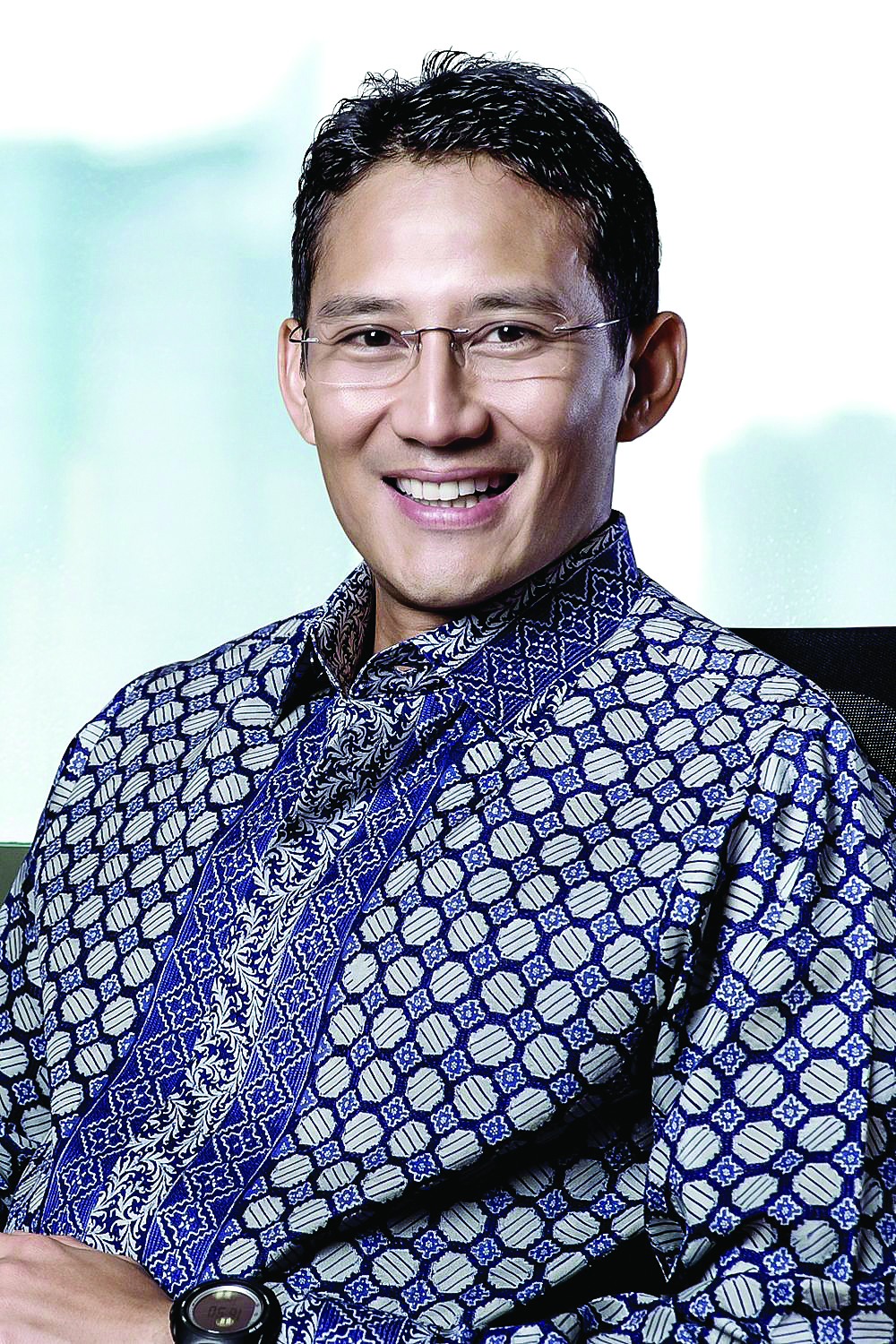JAKARTA: Sandiaga Salahuddin Uno discusses prospects of collaboration between India and Indonesia.
Indonesia has put the spotlight on “creative economy” by setting up a ministry for promotion of Cultural and Creative Industries. Manish Chand caught up with Indonesia’s Minister of Tourism and Creative Economy, Sandiaga Salahuddin Uno at his office in Jakarta to discuss prospects of collaboration between India and Indonesia in this emerging area. In this interview, Minister Uno highlights cultural affinities between India and Indonesia and advocates setting up of joint creative hubs to realise the full potential of creative economy. Looking ahead, Minister Uno views the upcoming World Conference on Creative Economy in Tashkent as the key for global partnerships and innovation.
Q: Indonesia is probably the only country that has a full-fledged Ministry of Tourism and Creative Economy. What are your plans to accelerate the creative economy in Indonesia in the coming months?
A: We have placed significant emphasis on the creative economy because it contributes to around 8% of our GDP. Indonesia benefits from the employment of about 25 million people, or more than 10% of its workforce, in the creative economy sector.
From culinary arts to creative design, fashion, handicrafts, music, film, animation, and games, the creative economy encompasses a wide range of industries. This sector is growing at nearly twice the rate of the overall economy. My ministry is responsible for policy-making and executing various programs for the creative economy. We provide training, assist with promotion, and, most importantly, offer access to funding and financing. For nearly 60 million creative economy micro, small, and medium enterprises across the country, we aim to help them not only start up but also scale up. So, it is something that the government under Prabowo Subianto, the President-Elect of Indonesia, would like to really put a huge emphasis on.
Q: Indonesia has a very vibrant creative economy, and India also has vibrant creative and cultural industries. How do you view the prospects of collaboration between India and Indonesia in this area?
A: There is a huge potential for collaboration. That’s why I am glad that India now ranks second in international tourist arrivals in Bali, among the top five before the pandemic. The Indian creative economy, like Indonesia’s, is focused on capitalizing on intellectual property and human creativity. It’s about
India and Indonesia share many similarities. When I was growing up, I read the Mahabharata and my favourite book was the Bhagavad Gita. I also watched the Ramayana, and the dances near Prambanan Temple in Yogyakarta.
Both countries place a strong emphasis on science and technology. India has made significant strides in this area. Talent development on both sides could benefit from infrastructure improvements. This is an important area of focus for both India and Indonesia.
Increasing access to financing is also crucial. One of the low-hanging fruits is developing joint creative hubs between India and Indonesia. These hubs could foster collaboration and participation in the sustainable global supply chain and enhancing competitiveness in the creative workforce.
Q: Tourism between India and Indonesia is growing due to our deep cultural and civilisational ties, but connectivity remains a challenge. What concrete steps are being taken to address this issue?
A: We are focusing on establishing more connectivity between Indian cities and major economic centres in Indonesia. The most obvious routes are Delhi-Jakarta and Mumbai-Denpasar, which we are prioritising with direct flights from Indigo and Air India. Additionally, we’re exploring the revival of routes like Chennai to Kualanamu in Medan and linking Lake Toba, a top tourism destination, to major Indian economic centres. We are opening up new connections and leveraging hubs in Vietnam, Kuala Lumpur, and Singapore, which have proven to be key success factors. We are also exploring linking through Bangkok as part of the ASEAN single-destination concept. The growth in tourism will increase opportunities for creative economic collaboration.
Bollywood and Indian weddings are becoming increasingly popular in Bali. Bollywood has been very successful here in Indonesia. We also believe that Indonesian movies could find significant success in India, given our cultural similarities and shared identities. Integrating diverse creative sectors such as film, television, animation, fashion, music, and performing arts could create a thriving industry on both sides of the Indian subcontinent and the Indonesian archipelago.
Q: What can we expect from the World Conference on Creative Economy in Tashkent in October?
A: In the context of global tensions and geopolitics, we want the World Conference on Creative Economy to emphasise peace and harmony. The creative economy is pivotal for driving the next phase of our global economy, and this cannot be achieved without peace and harmony.
The creative economy provides a platform for cultural exchange, promoting understanding, respect, social inclusion, and conflict resolution. While we may not agree on everything, we can unite around creativity and innovation. Music, literature, and film can foster empathy and unity.
Instead of focusing on divisive issues, why not concentrate on those that unite us? Indonesia, with its 70,000 islands, 400 ethnic groups, and 700 languages, exemplifies unity in diversity through the national motto of Bhinneka Tunggal Ika (Unity in Diversity). We have successfully integrated this concept into our artistic endeavours, using theatre and visual arts as tools for peace. By promoting creative economy, we can generate jobs, stabilise communities, reduce poverty, and minimise conflicts. Overall, it will enrich societies culturally and economically, contributing to a more peaceful world.
Manish Chand is CEO, Centre for Global India Insights, a think tank focused on global affairs and Editor-in-Chief, India Writes Network & India and the World.

